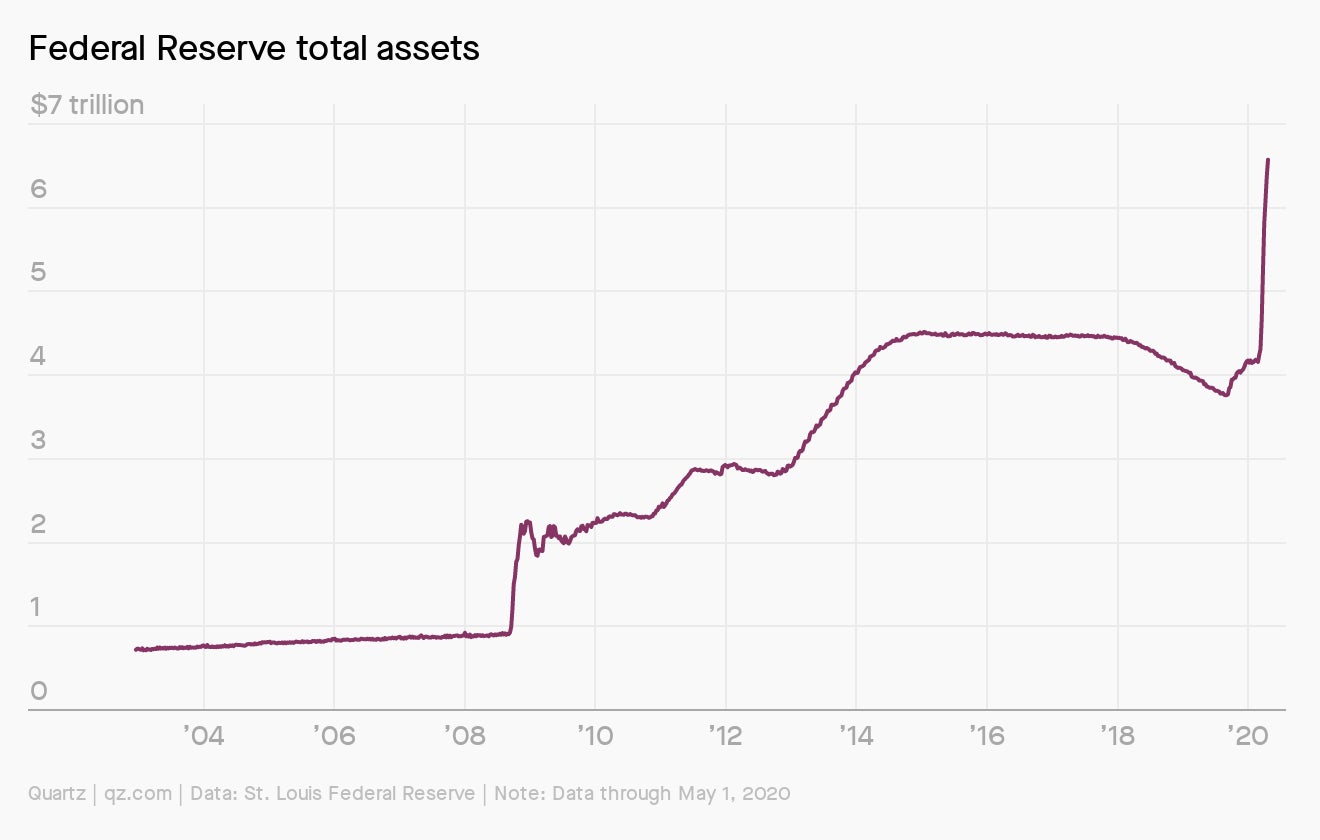China backlash, reopening decisions, quarantine relationship repair
Good morning, Quartz readers!

Good morning, Quartz readers!
Here’s what you need to know
A Chinese government report warned of harsh international backlash. The paper, presented last month by the Ministry of State Security to leaders including president Xi Jinping, warns that global animosity toward China is at its highest point since Tiananmen Square and, worst-case scenario, could lead to armed conflict with the US.
Japan’s state of emergency was extended to May 31. Prime minister Shinzo Abe said infection rates remain too high to lift lockdown measures, which were set to expire tomorrow. Still, museums and libraries may be allowed to reopen, along with businesses outside of the hardest-hit areas.
Three Russian coronavirus doctors fell from windows within eight days. Alexander Shulepov complained about a lack of medical supplies on social media before falling and fracturing his skull. The other two doctors—both now deceased—had conflicts with authorities shortly before their accidents.
The US Supreme Court debated the internet’s future over the phone. The justices held a doubly historic hearing, live-streaming their first-ever telephonic oral arguments in a trademark case that could change the internet.
Apple announced a new MacBook Pro. The 13-inch model comes with a $1,299 starting price and replaces its much-maligned butterfly keyboard with a new and improved “magic” one.
Reopening isn’t easy
South Korea has advice on reopening your office. The government’s recommendations include plastic partitions in the cafeteria, hand sanitizers on conference room tables, and a ban on handshakes. Students, meanwhile, are returning to school with masks, temperature checks, and regular desk disinfections.
Nigeria began easing its lockdown at maybe the worst possible time. Since April 27, when president Muhammadu Buhari announced plans to lift restrictions, the country’s coronavirus case count has risen 44%.
US health officials project 3,000 daily deaths by June 1. The Centers for Disease Prevention and Control’s sobering forecast comes one day after president Donald Trump admitted US deaths could reach 100,000 while continuing to press for a reopening economy—and as many states continued to reopen.
Charting central bank assets
Protecting an economy from a pandemic isn’t cheap, and central banks are going to buy a lot of their governments’ debt. The US Federal Reserve’s assets are skyrocketing. The balance sheets at the European Central Bank and Bank of Japan look pretty similar.

Around the world, central bank asset purchases are expected to reach $6 trillion this year.
- $5 trillion: Amount officials are currently spending and lending to keep their nations afloat—and they’ll have to pay it back.
- 60%: Amount of attendees at our workshop on career building in quarantine who are currently seeking new jobs.
- 20%: China’s decrease in Active Pharmaceutical Ingredient production during lockdown, majorly affecting the global drug supply
We’re obsessed with microwaves
Americans love zapping their meals. Born out of World War II innovation, the microwave has become a staple in US homes, making up a $3.7 billion market in 2006. New lines of trendy, “healthy” microwavable meals have led to a renaissance of reheating and a food subculture that has given us the “world’s saddest cookbook.” Instantly read today’s Quartz Daily Obsession.
Surprising discoveries
A four-billion year old Martian rock contains a key ingredient for life. The meteorite, from a time when Mars may have had a large ocean, holds organic compounds containing nitrogen.
Divorces are dropping during quarantine. Stuck together, some couples have called off their lawyers and tried to reconcile.
An Indian man was arrested for making booze out of hand sanitizer. Liquor shops in his home state of Madhya Pradesh have closed during lockdown.
A rogue drone shut down Latvian air traffic. All flights below 19,500 feet are suspended while authorities search for the drone, which drifted off during a test flight.
New York City newest bright idea is ultraviolet light. Subways and trains are about to get bathed in powerful rays in an attempt to kill any and all viruses.
You asked about antibody tests
Why is there such a widespread number of people who have tested positive for antibodies to Covid-19?
At this stage, Sean, antibody tests don’t tell us much, if anything, about immunity. Research on other coronaviruses suggests that some people will likely get some kind of immunity to re-infection after being infected with and developing antibodies to SARS-CoV-2.
But it’s simply too soon for scientists to know what concentration of antibodies would be needed, how long that protection might last, or how powerful it will be (not all antibodies are equally effective at neutralizing the virus). Most antibody tests only give a yes/no answer, not the kind of detail needed to understand immunity. Data from China suggest that some individuals, particularly young people, may even beat an infection without developing antibodies at all.
At this stage, it’s best to take antibody results with a big grain of salt. (Give our test simulator a whirl to see why.)
Our best wishes for a productive day. Please send any news, comments, microwave recipes, and fugitive drone sightings to [email protected]. Get the most out of Quartz by downloading our app on iOS or Android and becoming a member. Today’s Daily Brief was brought to you by Tim McDonnell, Susan Howson, and Nicolás Rivero.